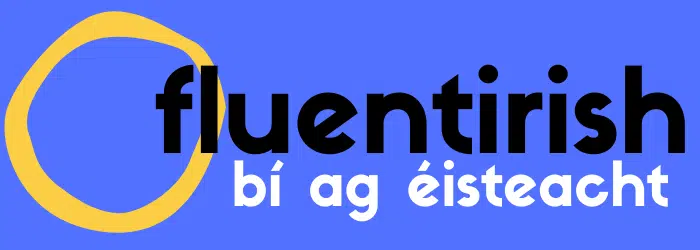How Hard Is The Irish Language Leaving Cert? How Come The Students Skip It? 🏫
We Ask: How Difficult Or Hard Is The Irish Language Leaving Cert?
How Hard Is The Irish Language Leaving Cert? 🏫: Last time, we have discussed the period it takes to typically learn the Irish language. Of course, I’m not gonna sugarcoat anything and say that the Irish language is one of the easiest language to know. In fact, I said this in preceding blog last week:
Of course, the answer to that will always be a long time. And, by long, I mean really long if you really want to immerse yourself fully.
As discussed, it takes a lot of time and effort to learn the Irish language. And, not a lot of people have those in their arsenal. Not even the Irish people themselves have a lot of time and effort in store (along with the will) to learn their native language. One example I know that makes these statements true is the fact that Irish secondary school students dread, loathe, hate (and many more negative words) the Irish language Leaving Certificate (or Leaving Cert) because of it being hard.
My question as we tread along through the blog is: how come? What really makes the Irish language Leaving Cert difficult? Let me discuss it with you in the following sections. Read on to learn more.
Is í an cheist atá agam agus muid ag siúl tríd an mblag: conas teacht? Cad a fhágann go bhfuil Deimhniú Ardteist na Gaeilge deacair i ndáiríre? Lig dom é a phlé leat sna hailt seo a leanas. Léigh ar aghaidh chun níos mó a fhoghlaim.
>>Check out the latest podcasts on FluentIrish.com – and start improving!
What exactly is the Irish Language Leaving Cert?
First and foremost, I must define the Leaving Cert for the readers unfamiliar with it. Known as the Leaving Certificate Examination, it is the final exam the secondary school students must take to enter a university in Ireland. This is very important to take as it can put the passers in a better place and admit you to third-level colleges such as University College Dublin and Maynooth University. Moreover, it can catapult passers to professions wherein the Irish language is a must.
Usually, the to-be takers need a minimum of two years to prepare for the Irish language Leaving Cert. But, there is also an optional Transition Year wherein the to-be takers can take the exam three years after they have done their Junior Certificate Examination.
Approximately 55,000 students, aged around 16-20 years old, take the Leaving Cert and spend an average fee of €116 (accurate as of 2020) fee for it.
Tógann thart ar 55,000 mac léinn, thart ar 16-20 bliana d’aois, an Ardteist agus caitheann siad táille ar an meán de € 116 (cruinn ó 2020).
Why do some students not take the exam?
Benefits and all, many still opt not to take the exam.
According to the thejournal.ie, a research that was carried out concluded that Irish in the post-primary education is dubbed as the hardest and least interesting subject. A significant number of students get exemptions.
In 2016, a total of 9,500 out of the 58,500 students even sat out the Irish language Leaving Cert! Note that students can opt not taking the exam even with the study of Irish being compulsory by schools – the Irish subject is legally required to be taught up to the end of sixth year.
In 2016, shuigh 9,500 mac léinn as an 58,500 mac léinn fiú amháin Ardteist na Gaeilge! Tabhair faoi deara gur féidir le mic léinn a roghnú gan an scrúdú a dhéanamh fiú agus staidéar na Gaeilge a bheith éigeantach ag scoileanna – éilítear go dlíthiúil an t-ábhar Gaeilge a theagasc suas go deireadh an séú bliain.
About 6, 500 of those who did not sit out the exam had exemptions recognised by the Department of Education due to either special needs, learning disabilities or attaining education through another state for a period of time. Additionally, 3,000 did not have the privilege of exemptions and took the exam.
We can summarise that the reason students skip the Irish language Leaving Cert because of the following:
- disengagement – Not a lot of students are that much interested in learning Irish. That can be due to a number of reasons such as Irish not having a significant impact in their lives or Irish not being important in what they want to do and be in their lives.
- difficulty – As stated above, the Irish language’s difficulty is also a major factor on why students skip the exams. They might have a hard time in that subject and poor academic performance, which is completely understandable.
- lack of bearing – Simply put, students do not have the highest expectations that the Irish subject does not affect or boost their final CAO points tally.
Additional figures
Now, we delve even deeper into what the students think about the Irish subject leading to the Irish language Leaving Cert.
According to the ESRI, 13-year-olds found Irish to be even more difficult than Maths and English. That’s quite a revalation, if you ask me! That is because in my opinion, I hated Maths more than any other subjects. But, that’s just me talking.
Back to the main point, it is even less likely to interest students if they are uninterested in the subject, let alone find it difficult. Gaelscoil, or Irish language schools, might help, you say? Gaelscoileanna also don’t have much of an effect in boosting a student’s motivation in subjecting himself/herself in the Irish subject.
thejournal.ie specifically states that:
“Interestingly though, the research found that, among students who attended a gaelscoil at primary level, there is “no significant boost” in their interest in Irish as a subject at post-primary level.
‘Interest in Irish at the age of 13 is found to be related to earlier interest in the subject as well as to attitudes to school more generally,’ the report states.
Those who ‘never’ liked school at the age of 9 are 1.8 times more likely to find Irish ‘not interesting’ four years later.”
Conclusion on how hard the Irish language Leaving Cert is
All in all, we can conclude that it is indeed very hard because it takes a lot of time and effort to learn it which can be quite daunting to a student still developing or finding his/her passions.




